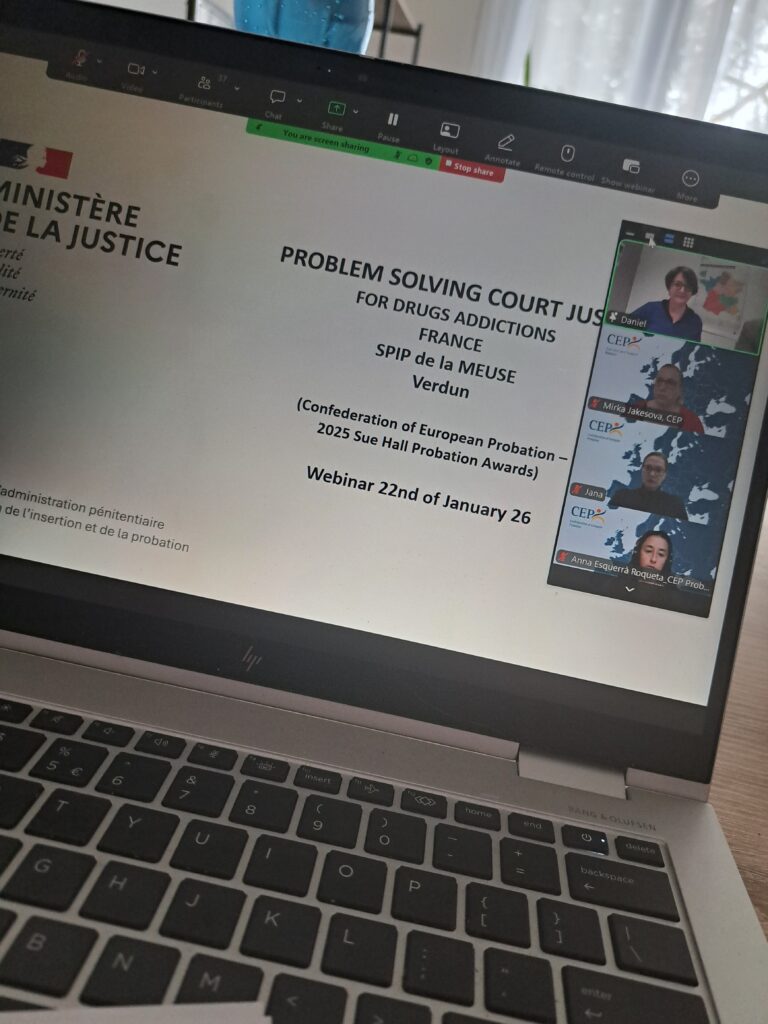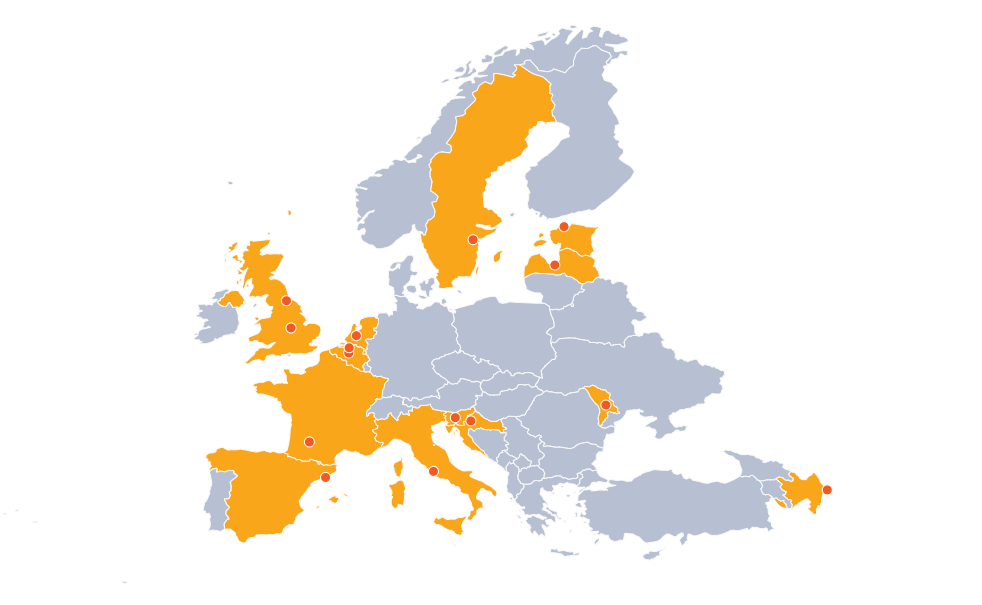Next Article
News
Dictionary of Probation and Offender Management
More than two hundred keywords in probation, extensively explained by almost 150 authorities in probation matters. In brief, that is the content of ‘The Dictionary of Probation and Offender Management’, which was published last September by Willan Publishing “Although it is called a dictionary, some book reviewers consider it more to be an encyclopaedia of probation”, says author Rob Canton, Professor Community and Criminal Justice at De Montfort University in Leicester.
 The Dictionary of Probation and Offender Management is one of the volumes in a series of dictionaries, treating terms and concepts of specific fields in the realm of criminal justice. “About two years ago, the publisher got in touch with me and told me he was planning to publish a dictionary on prisons”, recalls Rob Canton. “He asked me whether I thought there was enough difference between prison and probation to justify a separate book, a dictionary on probation. I told him that there was and he then asked me to write it.”
The Dictionary of Probation and Offender Management is one of the volumes in a series of dictionaries, treating terms and concepts of specific fields in the realm of criminal justice. “About two years ago, the publisher got in touch with me and told me he was planning to publish a dictionary on prisons”, recalls Rob Canton. “He asked me whether I thought there was enough difference between prison and probation to justify a separate book, a dictionary on probation. I told him that there was and he then asked me to write it.”
The idea of the publisher was that the dictionary would be jointly edited by one academic and one practitioner in probation. Rob Canton: “I approached David Hancock as the editor from practice. David Hancock used to be the chief probation officer of Nottinghamshire. That made him my boss when I worked for them years ago. He is very knowledgeable and has a lot of contacts within the English and Welsh probation service. He has just retired from the probation service and was pleased to do it. So together we determined the list of topics that should be in the book, which topic could be written by somebody from a University, and which topic by somebody from ‘the field.”
Further reading
149 authorities in the field of probation have written entries for the Dictionary of Probation and Offender Management. The more important subjects are discussed at greater length: there are entries of about 1,500 words, of about 1,000 words and of about 500 words. Each entry begins with a short definition, followed by a more extensive explanation. Under each entry the name of the author is mentioned, a cross-reference to related entries in the book and a suggestion of publications for further reading. The Dictionary was compiled to cover probation practice in England and Wales. However, many of the ideas and concepts that are now prominent in English probation policy and practice will be familiar to practitioners in other countries across Europe, or even may be a source of inspiration for new ideas.
“There are a number of original and thoughtful ideas in there that have not appeared in print before”, Rob Canton comments. “At the moment there are very many new developments in probation. New concepts come along and organisational structures are changing. So while we were compiling the volume, we wanted to include these new ideas about offender management and eventually included more entries than we originally had planned. For instance, in June, only a few months before the dictionary was to be published, the publisher suggested that there should be an entry on the British Ministry of Justice. This Ministry had been established only one month before and had taken over the responsibility for probation from the Home Office. Of course there had to be an entry for this new Ministry. So I wrote one quickly.”
Contemporary debate
Although the dictionary is, according to the publisher, designed to meet the needs of students and practitioners, it is considered by many book reviewers as an essential reference book for everyone working in the field of probation. “The contributors to the dictionary come from many different disciplines and because of the cross-references between the different entries, the Dictionary gives an overview of the contemporary debate on probation issues”, Canton comments. “‘Contestability’`, which we have described in our book as ‘the use of competition and market economics in the provision of public services’, is a good example of that. It is politically a very hot issue at the moment. In the dictionary the entry on contestability was written by a senior member of the National Offender Management Service. He argues that allowing competition in field of probation would enhance innovation. This entry is cross-referenced with the entry on privatisation, written by a leading person in a trade union. He argues that no evidence has been put forward that competition in probation has reduced reoffending or enhanced public protection. Politically these people disagree with each other profoundly. However, for the reader, we think that showing these two completely different views is very helpful for their understanding of these quite complex debates.”
Not only can one find more familiar debates on probation in the dictionary, but also some surprising entries. “We did think there are topics which sometimes may seem to be overlooked by many, which are nevertheless very important. For example, there are piece on ‘Learning disability’ and ‘Autism and Asperger syndrome’. ‘Mental disorder’ may seem a more familiar topic: some people coming into the criminal justice system are perhaps mentally ill. However, I think much less is known and much less is understood about people with particular types of learning disabilities or autism. These are people who are potentially very vulnerable in a criminal justice system. The more we recognise these issues and the more we understand them, the better we will do.”

Related News
Keep up to date with the latest developments, stories, and updates on probation from across Europe and beyond. Find relevant news and insights shaping the field today.
New

Alternatives to pre-trial detention, Community Sanctions and Measures, Framework Decisions, Technology
Future of Criminal Justice: CEP’s Contribution to Key 2025 Dialogues
27/01/2026
Throughout 2025, CEP and its representatives actively participated in the online Technical meetings ahead of the HLF as well as the High Level Forum on Future of Criminal Justice taking place on 4-5 March 2025, 20-21 May 2025 and 1-2 October 2025 in Brussels, Belgium.
Recap

Alternatives to pre-trial detention
Recap: Webinar on Alternatives to Detention 2026
26/01/2026
On Thursday 22 January, CEP hosted the first webinar of 2025 on the topic of Alternatives to Detention. The session led by Ms. Marina Pajoni from the French Prison and Probation Service titled „Problem Solving Justice in Pracitce: The Meuse Probation Service´s Approach to Drug Addiction“ introduced an innovative programme developed by the Meuse Probation Service in close cooperation with the French Ministry of Justice.
New

Education and Training
CEP launches an interactive European map of probation education and training institution contacts
22/01/2026
The CEP is pleased to inform its members that a new dedicated section has been developed on the CEP website featuring an interactive map of Europe.
New

CEP Events
CEP activity calendar 2026
20/01/2026
As we begin the new year, we would like to thank all CEP members, partners, and participants for your continued engagement and valuable contributions. Your involvement plays an essential role in shaping CEP’s work and activities.
We are pleased to share the CEP calendar for 2026, which provides an overview of the events planned for the year ahead. We look forward to continuing our collaboration and welcoming you to upcoming CEP activities throughout the year.
Thank you for being part of the CEP community.
New

CEP members, Gender-based violence
Interventions Alliance’s Eden House Recognized as Outstanding
15/01/2026
CEP is delighted to share that Eden House, an Interventions Alliance residential service for women with high-risk or complex needs on probation, has been rated “Outstanding” overall by HM Inspectorate of Probation. In 2022, Eden House was honored with the CEP Public Protection Award. Our sincere congratulations to the team for this remarkable achievement.
New

Education and Training
The Judicial Training Dashboard
14/01/2026
The European Training Platform (ETP) is a search tool for justice professionals. You can find self-learning materials on a great variety of EU law practice areas and related topics, as well as links to training providers’ homepages and course catalogues.
Subscribe to our bi-monthly email newsletter!
"*" indicates required fields
- Keep up to date with important probation developments and insights.

